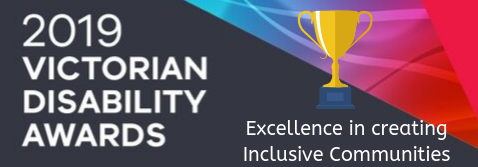
“The views of people with disability are central to the design, funding, delivery and evaluation of policies, programs and services which impact on them, with appropriate support and adjustment for participation.”
First Principle – National Disability Strategy 2010-2020. Council of Australian Governments
The Voice Least Heard
The voice of people with cognitive disabilities is often the least heard due to a range of societal attitudes fueled by myths and misconceptions. These attitudes often lead to exclusionary practices particularly when it comes to having an equal ‘voice at the table’. This means, more often than not, within government, services and community organisations decisions have been made about people with cognitive disabilities without people with cognitive disabilities.
Often the voice of people with a cognitive disability such as intellectual disability or ABI represented on boards and committee is that of families and carers or even staff. The question which has to be asked ‘is this inclusion?’ Families can, and do provide needed information however they speak from a family perspective.
The only person who can speak from the perspective of a person with a cognitive disability is a person with a cognitive disability.
The Social Model of Disability and Consumer Representatives

“The disability field has the most well-articulated theory of consumer participation; a body of knowledge known as the ‘social model of disability’ which has at its heart an approach to participation, which assumes a high level of empowerment and control by people with disabilities.”
Achieving Good Practice in Consumer Representation, Consumer Health Forum 2002
The Social Model of disability was developed by disabled people in the 1970s and 1980s. The model says that disability is caused by the way society is organised, rather than by a person’s impairment or difference. It looks at ways of removing barriers that disenable people with a disability from full and equal participation in society. http://www.scope.org.uk/about-us/our-brand/social-model-of-disability
The social model is relevant to consumer representatives because it places the onus on organisations to remove the barriers which prevent people with cognitive disabilities from having an equal say in developing, designing, implementing and evaluating policies, programs and services. Barriers to people with cognitive disabilities having a ‘voice at the table’ include:
- information not available in accessible formats;
- organisational attitudes and perceptions;
- inaccessible meeting practices, including inaccessible language e.g. jargon,
- acronyms etc.
- staff attitudes and perceptions;
- support needs not address.

“They think ‘aren’t we great, aren’t we fantastic, we have people with intellectual disabilities in our meeting – that proves we are consulting with them’ but we don’t understand one word . . . it is like tokenistic.”
Susan Arthur, Positive Powerful Parents Self Advocacy Group
Waiting for Your Call
People with intellectual disabilities and Acquired Brain Injury have campaigned to have a greater ‘voice at the table’. They are fully aware they are under-represented in decision making processes and believe that services, government policies and the community organisations are poorer for it. They are waiting for your call!
Next Page: Chapter 2 – Define the Role
Chapter 1. Understand Consumer Participation
Read more
Menu: Consumer Participation Kit



